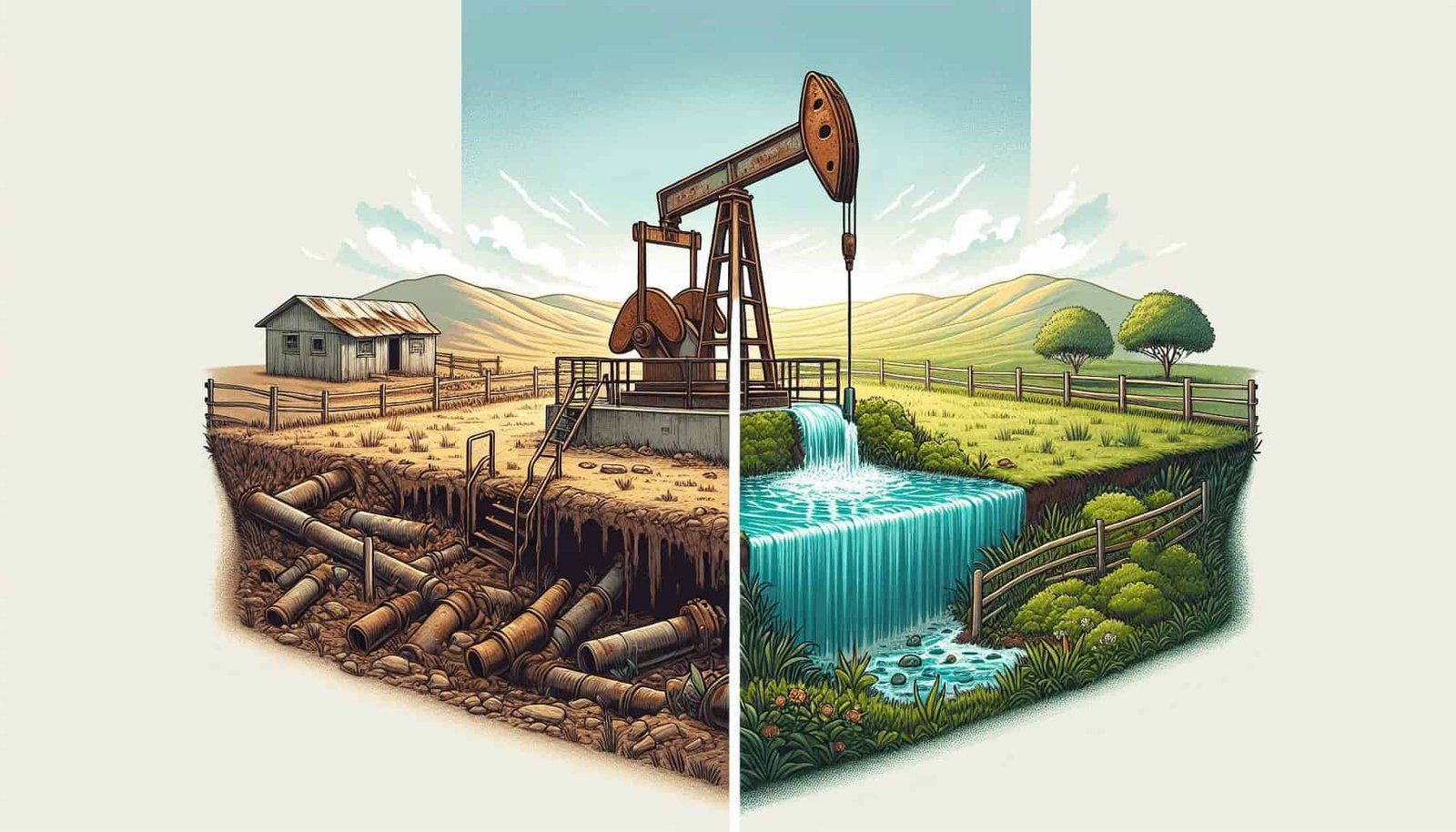Did you know that converting orphaned oil wells to water wells has faced resistance in some areas? A recent survey uncovered contamination in hundreds of drinking water wells in Washington state, raising concerns about the safety of the water supply. With reports of water wells reaching record lows and being affected by harmful chemicals like PFAS, communities are grappling with the challenge of ensuring access to clean and safe drinking water. Despite efforts to address the issue, such as offering free nitrate sample kits and drilling new wells, obstacles remain in protecting water resources. As discussions continue on regulating private water wells and addressing abandoned wells, it’s clear that more work is needed to safeguard water quality and availability for all.
Converting Orphaned Oil Wells to Water Wells: Exploring Resistance
When it comes to addressing environmental issues and resource management, the conversion of orphaned oil wells to water wells has emerged as a solution that could benefit communities in various ways. However, this concept is not without its challenges, as it has faced resistance from different sectors. Let’s delve into the intricacies of converting orphaned oil wells to water wells and examine the resistance encountered in this process.
Understanding the Concept of Converting Oil Wells to Water Wells
Converting orphaned oil wells to water wells involves repurposing abandoned or inactive oil wells to extract water for beneficial use. This sustainable practice aims to utilize existing infrastructure to access groundwater resources instead of drilling new wells, thereby reducing environmental impact and resource depletion.
This method presents an opportunity to address water scarcity issues, especially in regions where access to clean and ample water sources is essential for community well-being. By repurposing oil wells for water extraction, it is possible to leverage existing infrastructure for a new purpose, contributing to efficient resource utilization.

The Benefits of Converting Orphaned Oil Wells to Water Wells
Repurposing orphaned oil wells into water wells offers several advantages that can positively impact communities and the environment. By utilizing existing wells, this practice reduces the need for new drilling, which can be costly and disruptive to the ecosystem. Moreover, converting oil wells to water wells can provide a sustainable solution to water supply challenges, especially in areas facing water scarcity.
Additionally, repurposing oil wells for water extraction promotes resource efficiency and minimizes the environmental footprint associated with drilling new wells. This approach aligns with the principles of sustainability by maximizing the use of existing infrastructure while addressing pressing water resource needs.

Challenges and Resistance Faced in Converting Oil Wells to Water Wells
Despite the potential benefits of converting orphaned oil wells to water wells, this initiative has encountered resistance from various stakeholders. One of the primary concerns raised is the potential for contamination, as repurposed oil wells may carry residual oil or chemicals that could affect water quality.
Moreover, resistance to converting oil wells to water wells may stem from regulatory challenges, as repurposing wells for a different purpose could require adherence to different guidelines and protocols. Additionally, some stakeholders may express reluctance due to uncertainties surrounding the efficacy and safety of repurposing oil wells for water extraction.

Addressing Resistance and Overcoming Challenges
To overcome resistance and address challenges associated with converting orphaned oil wells to water wells, it is crucial to conduct thorough assessments and evaluations. This process involves identifying potential risks, implementing mitigation measures, and ensuring compliance with regulatory standards to safeguard water quality and community health.
Furthermore, engaging in transparent communication with stakeholders and fostering collaboration among government agencies, environmental organizations, and local communities can help enhance acceptance and support for repurposing oil wells for water extraction. By addressing concerns proactively and involving all relevant parties in the decision-making process, it is possible to navigate challenges effectively.

Case Studies and Success Stories
To illustrate the feasibility and success of converting orphaned oil wells to water wells, examining case studies and success stories can provide valuable insights. By showcasing examples where this practice has been implemented successfully and has yielded positive outcomes, stakeholders can gain confidence in the potential benefits of repurposing oil wells for water extraction.
Case Study: [Insert Relevant Case Study]
In this case study, a community successfully repurposed orphaned oil wells into water wells, addressing water scarcity issues and promoting sustainable resource management. By highlighting the process, challenges faced, and outcomes achieved, this case study demonstrates the feasibility and benefits of converting oil wells to water wells.
Success Story: [Insert Relevant Success Story]
In a success story showcasing the conversion of oil wells to water wells, a region experienced improved water access and quality through this innovative approach. By sharing the positive impact on the community, environment, and resource utilization, this success story highlights the transformative potential of repurposing orphaned oil wells for water extraction.

Conclusion
In conclusion, converting orphaned oil wells to water wells presents a promising solution to address water scarcity and environmental challenges. While this practice offers numerous benefits, including resource efficiency and sustainable water supply, it also encounters resistance and challenges that must be addressed proactively. By understanding the concept, benefits, challenges, and strategies for overcoming resistance, stakeholders can work towards implementing successful initiatives to repurpose oil wells for water extraction.
